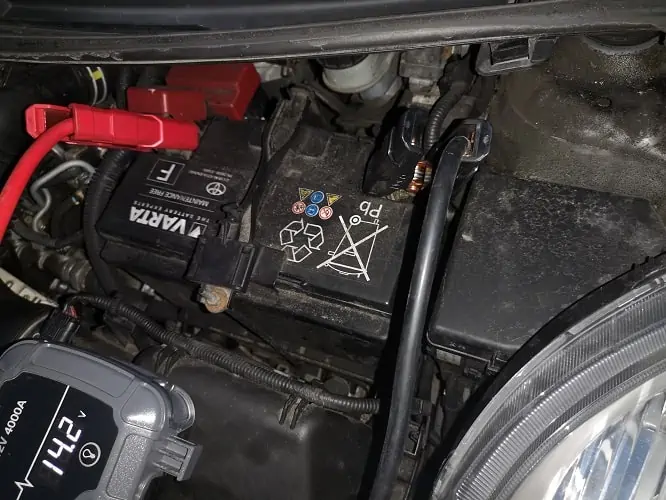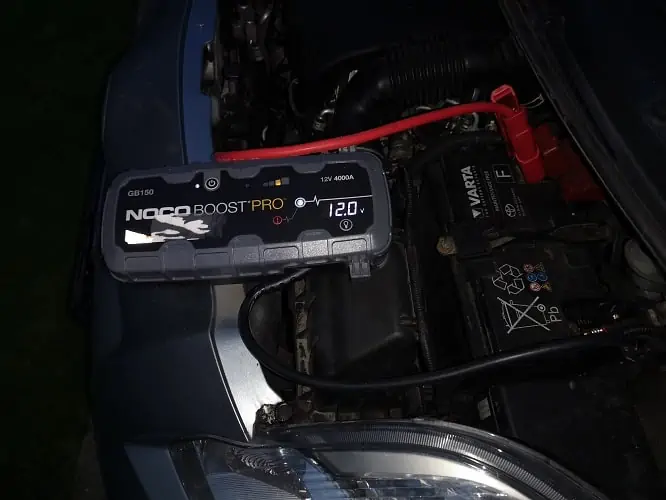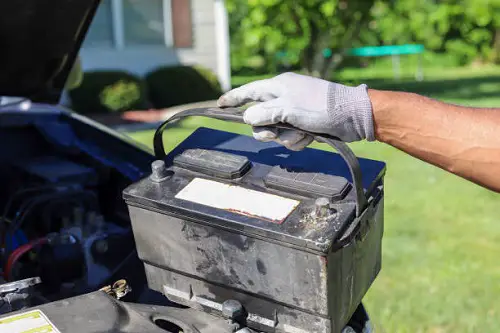No matter what car you have and how much you drive it, the battery will eventually wear down and require recharging. But how long does it take to charge a car battery?
Unfortunately for anyone in a hurry, the process is more time-consuming than most people realize and varies depending on the battery and equipment you have.
This article will explain how long it will take to bring your car battery to full charge, alternate charging methods, and why your battery died in the first place.
How Long You’ll Need To Charge Your Car Battery
The time needed to bring a dead battery back to life depends on the size of your car battery, what car charger you have, and how much juice you want back in the battery.

The size of the average car battery ranges from 40 to 80 amps, but the majority of mid-sized vehicles use 62-amp batteries. Similarly, standard car chargers range from two to 40-amps, and each has different charge times, but four-amp models are the standard.
It takes roughly 18 hours to recharge an average-sized car battery from zero to 100% with an average-sized charger. It’s closer to 45 minutes with the more powerful 40-amp charger and can take as long as 36 hours with the weakest two-amp charger.
But how long does it take to charge a car battery from entirely dead to drivable rather than full charge? Generally, your engine will turn on if you use a four amp charger for one hour on an average-sized car battery, but you’ll need to restore it to full as soon as possible to avoid repeated charges.
Different Types Of Battery Chargers
The style of charger you use plays a significant role in how long it takes to charge your car battery. There are two main types to choose from, standard chargers and trickle chargers.
Standard Chargers
Standard car chargers feed direct current electricity to your battery in a constant, high-energy flow. As a result, they work quicker than trickle chargers but demand more attention because of that speed.
Standard car battery chargers don’t shut off automatically. Because their energy output is so high, they will overcharge your battery if you don’t constantly monitor and turn them off on time.
Overcharging your battery can destroy it and even cause it to explode in severe instances.
Trickle Chargers

Trickle chargers are similar to standard ones, except they come in smaller voltages and feed your battery electricity slower.
Though trickle chargers can still overcharge your battery, there’s a much lower risk since they transfer electricity slowly. But the trade-off is that you’ll have to wait longer before the battery finishes charging.
How Long Does It Take To Charge A Car Battery With A Trickle Charger?
Most trickle chargers have a one-amp voltage. Since they offer so few amps and distribute electricity slower than standard chargers, it can take up to two days before they charge an average-sized dead battery to full regular capacity and reserve capacity.
Which Type Of Charger Should You Use?
Standard and trickle chargers both eventually finish the job, so deciding which one to use depends primarily on your schedule.
If you’re in a hurry but have time to monitor the charge constantly, standard chargers are the way to go. For example, if you’re running late for work but have a dead car battery, a standard charger will give you a quicker boost than trickle chargers that gets you to your job in minutes.
On the other hand, trickle chargers are the better option if you don’t need your car for a couple of days and don’t want to check the battery every 30 minutes. The extended timeline will keep your car battery from overcharging if you leave it unattended for work or running errands.
How Long Does It Take To Charge A Car Battery Without A Charger?
Car batteries give your engine enough electricity to turn on, and the alternator recharges the battery once the vehicle is running. So if your car battery has low power but hasn’t completely dried, you can recharge it just by turning on your car.
However, it will take longer to charge your car battery without help from a dedicated battery charger. Specifically, vehicles need several hours of idle operation to restore their half-charged battery to full.
Car alternators charge batteries more quickly the more revolutions per minute the engine puts out, so you can speed the process along by driving your car.
Traveling half an hour at average freeway speeds can take a half-charged battery to full, but it’s easier and more budget-friendly to use a battery charger between extra effort and gas costs.
Why Do Car Batteries Die?
More often than not, car batteries die for simple reasons like the driver leaving their headlights or radio running after exiting the vehicle. And sometimes batteries drain from nothing more than regular inactivity.

It takes roughly 60 days for an average-sized car battery to lose a full charge if you never turn on the car. So even if you don’t regularly drive, taking your car out at least once per month to let the alternator run can help you avoid unexpected battery issues.
How Can You Tell When My Battery Has A Low Charge?
Old age is the clearest sign that it’s time to replace your car battery. Older batteries can’t hold a charge as well as newer ones, so if your battery dies more often than usual, it’s likely because of age.
You should purchase a new battery after five years, even if you don’t notice any other issues. And if it starts turning on slowly after three years, you’re probably due for a replacement.
Another way to tell if your battery is low is to ask, “how long does it take to charge a car battery?” If it takes longer to charge your car battery than the timelines listed above, the battery charge is probably low, and you’ll either need to replace or regularly monitor it.

Garry is the happy owner of a funky 2018 Nissan Juke Ti-S AWD. After growing up around his family’s mechanics shop, he is passionate about bringing budget-friendly car care to every driver. Garry has a business degree and is a car enthusiast.


